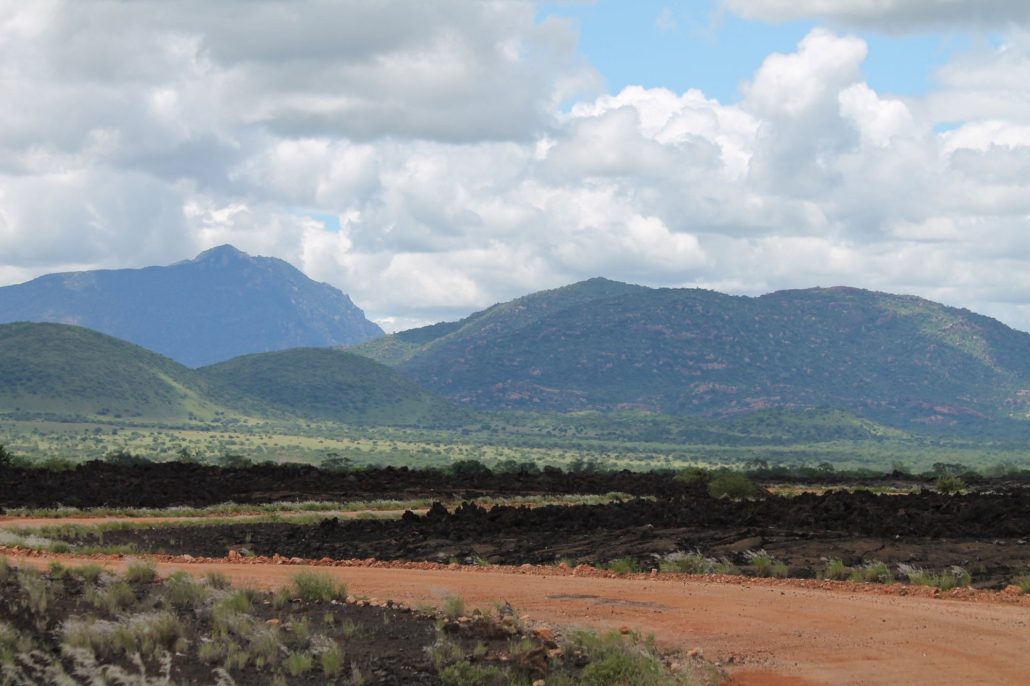Complete Guide To Chyulu Hills National Park
Chyulu Hills National Park is a stunning natural reserve located in southern Kenya, approximately 150 kilometers (93 miles) southeast of Nairobi and 40 kilometers (25 miles) northwest of the famous Tsavo National Park. Established in 1983, the park encompasses approximately 700 square kilometers of rolling hills and volcanic landscapes, featuring a diverse range of ecosystems.

The Chyulu Hills are renowned for their breathtaking views of Mount Kilimanjaro to the south and the vast savannahs that stretch towards Tsavo. The park’s unique topography, characterized by grassy slopes, dense forests, and underground lava tubes, creates an inviting habitat for a wide variety of flora and fauna. As a lesser-known destination, Chyulu Hills offers visitors an opportunity to experience Kenya’s natural beauty and wildlife away from the crowded tourist spots.
Wildlife in Chyulu Hills National Park
Chyulu Hills National Park is home to a diverse array of wildlife, making it an exciting destination for safari enthusiasts. The park’s habitats support a variety of mammals, including elephants, buffalos, giraffes, zebras, and various antelope species such as impalas and grant’s gazelles. Visitors may also encounter predators like lions, leopards, and hyenas, particularly in the more open grassland areas. One of the park’s unique features is its role as a corridor for migratory wildlife moving between Tsavo West National Park and the surrounding conservancies. The park’s rich biodiversity is further enhanced by its varied ecosystems, which include montane forests, open grasslands, and volcanic landscapes.
Birds in Chyulu Hills National Park
Birdwatching in Chyulu Hills National Park is a rewarding experience, with over 300 species of birds recorded within the park. The diverse habitats attract a wide range of avian life, making it a hotspot for bird enthusiasts. Notable bird species include the African harrier-hawk, chestnut-throated apalis, and the rare olive sunbird. Additionally, the park is home to various raptors and migratory birds, especially during the wet season when many species come to breed. Birdwatching can be enjoyed throughout the year, but the rainy seasons from March to May and October to December often yield the most activity and vibrant plumage among the birds.
Weather and Climate
Chyulu Hills National Park experiences a pleasant climate characterized by mild temperatures and seasonal rainfall. The park is situated at an altitude ranging from 1,600 meters to 2,200 meters (5,249 to 7,218 feet), contributing to its cooler temperatures compared to surrounding lowland areas. Average daytime temperatures typically range from 20°C to 30°C (68°F to 86°F), while nighttime temperatures can drop to around 10°C (50°F). The park receives rainfall primarily during two wet seasons: the long rains from March to May and the short rains from October to December. The drier months, particularly from June to September, provide ideal conditions for wildlife viewing, as animals gather around available water sources.
Getting To Chyulu Hills National Park
Reaching Chyulu Hills National Park is relatively straightforward, with various options for transportation. The park is approximately 150 kilometers (93 miles) from Nairobi, making it accessible by road. Travelers can hire a taxi or take a private vehicle, with the journey taking around two to three hours depending on traffic conditions. For those coming from Mombasa, the distance is approximately 200 kilometers (124 miles), typically requiring about four to five hours by road. Alternatively, visitors can arrange for a domestic flight to nearby airstrips, such as Keekorok Airstrip, and then transfer to the park by road. The well-maintained roads and access routes make Chyulu Hills a convenient destination for a memorable safari experience in Kenya.
Safety and Vaccination
Safety is a priority for visitors to Chyulu Hills National Park, and the park is generally considered safe for tourists. However, it is advisable to stay with a guide when exploring the park and to remain vigilant, especially when encountering wildlife. As for health precautions, visitors are recommended to consult their healthcare providers for vaccinations prior to traveling to Kenya. Vaccinations for yellow fever, hepatitis A, typhoid, and tetanus are often suggested. While the risk of malaria is lower in the highlands, it is prudent to take preventive measures, especially if visiting other regions in Kenya where malaria is more prevalent.
Park Rules
To preserve the natural beauty and ecological balance of Chyulu Hills National Park, visitors are required to adhere to certain rules and regulations. Guests should remain on designated trails to avoid disturbing wildlife and their habitats. Feeding animals is strictly prohibited, as it can lead to dangerous behaviors and disrupt the natural feeding patterns of wildlife. It is important to keep noise levels to a minimum to avoid scaring off animals. Littering is not allowed, and all visitors should dispose of waste in designated bins or take it with them. Camping is allowed in designated areas only, and visitors should always respect local customs and engage positively with surrounding communities.
